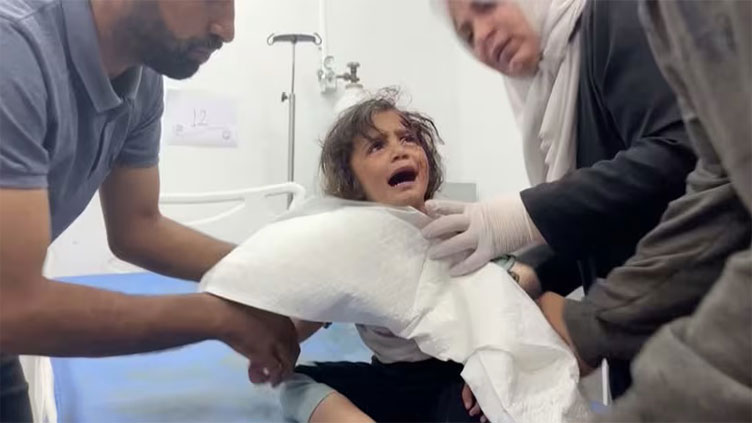Israeli incursion could halt Rafah's last functioning hospital, WHO says

World
The Israeli tanks were reported to have advanced into the centre of Rafah.
GENEVA (Reuters) - A World Health Organization official said (May 28) the last hospital in Rafah could stop functioning and a substantial number of deaths could be expected if Israel launches a "full incursion" into the southern Gaza city.
"If the incursion would continue, we would lose the last hospital in Rafah," Richard Peeperkorn, the WHO representative for Gaza and the West Bank, said on the sidelines of the World Health Assembly in Geneva, as Israeli tanks were reported to have advanced into the centre of Rafah.
He said that in the case of a "full incursion", a contingency plan involving treating patients in a string of ill-equipped field hospitals "will not prevent what we expect: substantial additional mortality and morbidity".
Israel's three-week-old Rafah offensive stirred renewed outrage after an airstrike on Sunday ignited a blaze in a tent camp in a western district, killing at least 45 people.
Israel said it had targeted two senior Hamas operatives in a compound and had not intended to cause civilian casualties.
On Tuesday, 21 Palestinians were killed and dozens wounded in Israeli tank shelling of on an area with tents housing displaced people west of Rafah, according to Palestinian medical officials.
Peeperkorn said that of the three hospitals in Rafah, only one was "barely functional". He said the El-Najar Hospital, which had previously serviced 700 dialysis patients, was no longer operating.
Rafah was a major entry point for humanitarian relief before Israel stepped up its military offensive on the Gaza side of the border earlier this month and seized control of the crossing from the Palestinian side.
Peeperkorn said its closure had had a direct impact on WHO's ability to get medical supplies into Gaza.
"Almost 100 per cent of the medical supplies, essential medicines, equipment, they actually come from Al-Arish (in Egypt) through the Rafah crossing," he said. "There are currently 60 trucks that are in Al-Arish waiting to get into Gaza."
Since the Rafah closure, WHO has only been able to get three medical supply trucks through Kerem Shalom, a crossing from Israel, Peeperkorn said.
Separately, UNICEF spokesperson James Elder said that a typical person in Rafah had access to around just one litre of water per day, "catastrophically below any emergency level".


